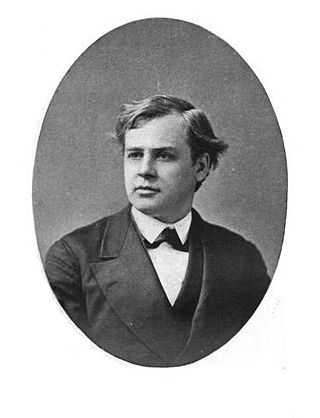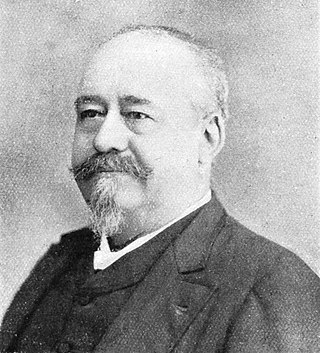
"Away in a Manger" is a Christmas carol first published in the late nineteenth century and used widely throughout the English-speaking world. In Britain, it is one of the most popular carols; a 1996 Gallup Poll ranked it joint second. Although it was long claimed to be the work of German religious reformer Martin Luther, the carol is now thought to be wholly American in origin. The two most common musical settings are by William J. Kirkpatrick (1895) and James Ramsey Murray (1887).

"Simple Gifts" is a Shaker song written and composed in 1848, generally attributed to Elder Joseph Brackett from Alfred Shaker Village.
"Take My Hand, Precious Lord" is a gospel song. The lyrics were written by Thomas A. Dorsey, who also adapted the melody.

"Jesus Loves Me" is a Christian hymn written by Anna Bartlett Warner (1827–1915). The lyrics first appeared as a poem in the context of an 1860 novel called Say and Seal, written by her older sister Susan Warner (1819–1885), in which the words were spoken as a comforting poem to a dying child. The tune was added in 1862 by William Batchelder Bradbury (1816–1868). Along with his tune, Bradbury added his own chorus "Yes, Jesus loves me, Yes, Jesus Loves me..." After publication as a song it became one of the most popular Christian hymns in churches around the world, especially among children.
"I'll Fly Away" is a hymn written in 1929 by Albert E. Brumley and published in 1932 by the Hartford Music company in a collection titled Wonderful Message. Brumley's writing was influenced by the 1924 secular ballad, "The Prisoner's Song".

"Angels We Have Heard on High" is a Christmas carol to the hymn tune "Gloria" from a traditional French song of unknown origin called "Les Anges dans nos campagnes", with paraphrased English lyrics by James Chadwick. The song's subject is the birth of Jesus Christ as narrated in the Gospel of Luke, specifically the scene outside Bethlehem in which shepherds encounter a multitude of angels singing and praising the newborn child.

"I Surrender All" is a Christian hymn, with words written by American art teacher and musician Judson W. Van DeVenter (1855–1939), who subsequently became a music minister and evangelist. It was put to music by Winfield S. Weeden (1847–1908), and published in 1896.

Precious Memories is the thirteenth studio album and the first gospel album by American country music artist Alan Jackson. It was released on February 28, 2006 on the Arista Nashville label. This project began at The Rukkus Room Recording Studios when Alan Jackson recorded a song for his Father-In-Law’s funeral. This recording led to what is now the Precious Memories album. Unlike his previous albums, this is a side project composed of traditional gospel songs. Although no singles were released from it, Precious Memories earned a Platinum certification by the Recording Industry Association of America (RIAA).

Amazing Grace: Music Inspired By the Motion Picture is a soundtrack for the movie Amazing Grace starring Ioan Gruffudd. The album features new versions of old hymns recorded by some of Christian music's more prominent artists as well as one of the most popular country artists around today.

William James Kirkpatrick was an Irish-born American hymnwriter. He partnered with John R. Sweney to produce and publish over 1,000 gospel hymn songs and over sixty hymnal books.

My Jesus I Love Thee is a poem written by William Ralph Featherston in 1864 when he was 16 years old, although one source says he could have been just 12 years old. The first two lines of this poem are nearly the same as a hymn written by Caleb J. Taylor, published in 1804; this hymn is used as the basis for the song Imandra by Ananias Davisson in the Supplement to the Kentucky Harmony in 1820, reprinted in Southern Harmony in 1835. There are other similarities between Featherston's poem and camp-meeting songs published in the 1820s onward.

"Come, Come, Ye Saints" is one of the best-known Latter-day Saint hymns. The lyrics were written in 1846 by Mormon poet William Clayton. The hymn has been called the anthem of the nineteenth-century Mormon pioneers and "the landmark Mormon anthem."

("Give Me That") "Old-Time Religion" is a traditional Gospel song dating from 1873, when it was included in a list of Jubilee songs—or earlier. It has become a standard in many Protestant hymnals, though it says nothing about Jesus or the gospel, and covered by many artists. Some scholars, such as Forrest Mason McCann, have asserted the possibility of an earlier stage of evolution of the song, in that "the tune may go back to English folk origins". In any event, it was by way of Charles Davis Tillman that the song had incalculable influence on the confluence of black spiritual and white gospel song traditions in forming the genre now known as southern gospel. Tillman was largely responsible for publishing the song into the repertoire of white audiences. It was first heard sung by African-Americans and written down by Tillman when he attended a camp meeting in Lexington, South Carolina in 1889.
"Gwahoddiad" is a Welsh hymn of American origin.

Hymned, No. 1 is the first solo album from MercyMe singer Bart Millard. The album features modern takes on popular Christian hymns. The album was released on August 16, 2005.

Leaning on the Everlasting Arms is a hymn published in 1887 with music by Anthony J. Showalter and lyrics by Showalter and Elisha Hoffman.

John Robson Sweney was an American composer from Pennsylvania. He was a professor of music at the Pennsylvania Military Academy for twenty-five years and collaborated with William J. Kirkpatrick to produce and publish over 1,000 gospel hymn songs and over sixty hymnal books. His most popular and widely known hymn is "Beulah Land".

"O'er the Gloomy Hills of Darkness", also titled "O'er Those Gloomy Hills of Darkness", is a Welsh Christian hymn by William Williams Pantycelyn written in 1772. The hymn was written as a missionary hymn; there are conflicting accounts of why the hymn was written. The hymn was later published in 374 hymnals worldwide, though it was censored and altered in the United States by slaveholders for evangelising to slaves. The hymn later fell out of favour with hymn book editors in the 1960s.

"The Strife is O'er, the Battle Done" is a Christian hymn that is traditionally sung at Easter to celebrate the Resurrection of Jesus. It was originally a 17th-century Latin hymn, "Finita iam sunt proelia"; the popular English-language version is an 1861 translation by the English hymnwriter Francis Pott.
















